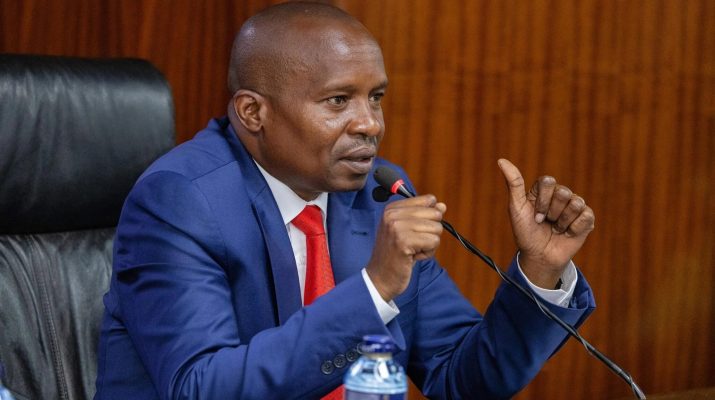By Debra Rono
Interior Cabinet Secretary Nominee Professor Kithure Kindiki has justified the government’s decision to deploy the Kenya Defence Forces (KDF) in response to the protests occurring during the anti-finance bill demonstrations across the nation.
Kindiki made these remarks during his vetting by the parliamentary committee, where he was questioned regarding the current state of the police force and its deployment capabilities.
He emphasized the significance of Article 241 of the Constitution, noting its relevance in emergencies, which allows the national police to seek assistance from the KDF.
Professor Kindiki defended the deployment of the KDF, describing it as a precautionary measure due to the existential threat posed by criminals to critical government installations.
“The calling of KDF was a precaution because the criminals who burnt Parliament were also threatening to burn State House. If that was not reason enough to put KDF on standby legally, I don’t think any other situation would have met the threshold,” Kindiki argued.
On June 26, members of Parliament voted in favour of Majority Leader Kimani Ichung’wa’s motion to deploy the KDF to address the anti-finance bill protests, which had seen demonstrators occupy Parliament the previous day.
Defence Cabinet Secretary Aden Duale had officially announced the KDF deployment in a gazette notice dated June 25, citing Article 241 (3) (b) of Kenya’s Constitution to authorize the KDF’s support of the National Police Service.
“The Kenya Defence Forces is deployed on the 25th June, 2024 in support of the National Police Service in response to the security emergency caused by the ongoing violent protests in various parts of the Republic of Kenya resulting in destruction and broaching of critical infrastructure,” read the gazette notice.
During the vetting session, the Interior CS nominee also justified his decision to deploy KDF to the North Rift to combat banditry, citing the lack of air assets within the national police force at the time.
He emphasized the necessity of military support due to the collapse of the national police airwing.
“At that time the national police airwing had collapsed, right now it is operational, we didn’t have adequate air assets and therefore we need the support of the military,”said Kindiki.
Professor Kindiki clarified that the North Rift operations were primarily led by the police.
The vetting process for CS nominees commenced on Thursday morning, with the nominees appearing before the parliamentary vetting committee chaired by the National Assembly Speaker, Moses Wetangula.
Kithure Kindiki, the Interior CS nominee, was the first candidate to undergo vetting, followed by the health nominee, Debra Mlongo.

